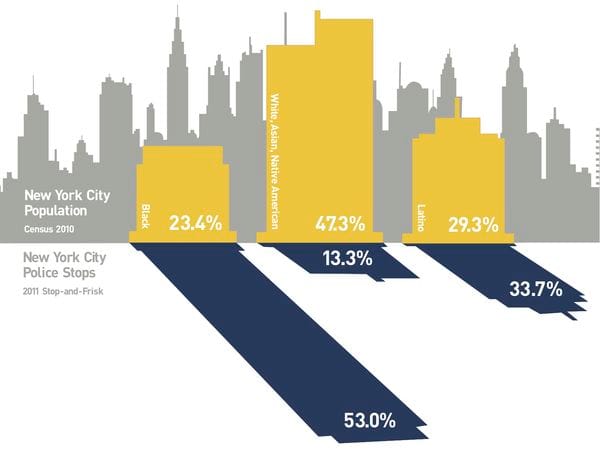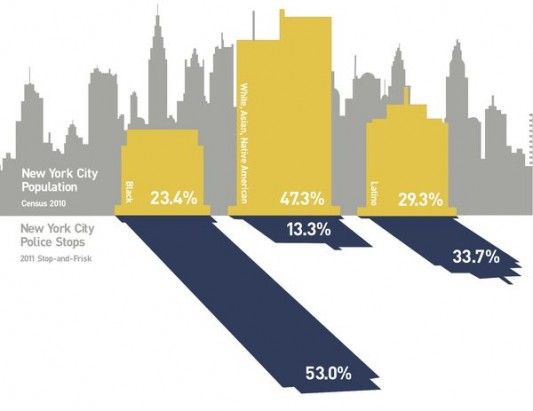Neighborhood Discusses “Restoring Trust: A Dialogue on Police-Community Relations”


graphic via Act Now
On Monday night, Public Advocate Bill de Blasio, Councilmembers Brad Lander and Stephen Levin, Dr. Delores Jones-Brown of John Jay College, and Udi Ofer of the New York Civil Liberties Union gathered at Beth Elohim to to discuss the troubled state of brownstone Brooklyn’s police-community relations in the stop-and-frisk era.
SafeSlope, a neighborhood group that formed after last summer’s spate of Park Slope sexual assaults, gave us (and anyone else who responded to their tweet) a recap* of who said what:
Public Advocate Bill De Blasio kicked things off: In 2003, NYC had 160,000 stops. 2011 had 800,000. He’s in favor of CompStat. At the same time, he worries that the public dialogue around policing undersells the importance of community involvement.
Udi Ofer of the NYCLU spoke next: Last year, there were more stops of young black men in NYC than the entire total population of young black men. In the 78th precinct, there were 3,555 stops — 2,662 (79%) of those were of blacks or Latinos. In the NYC public schools — where there are 5,4000 police and only 1,500 social workers — 15 students are arrested daily. 96% of them are black or Latino. In his words, the city has two police departments: one for blacks and Latinos. But the problem is rooted at One Police Plaza, not in individual precincts. Ofer also points out that other cities without stop and frisk policies actually had larger declines in crime during the same period.
Next up: City Council Member Brad Lander: “We cannot preserve our safety by violating civil rights.” Building on Ofer’s comments about the school-to-prison pipeline at work in NYC, Lander cites the recent school segregation articles in the New York Times. Next week, he says, he’ll introduce a bill to create a new city office– that of the NYPD Inspector General, who will be appointed by the mayor to serve as independent oversight of the NYPD.
Dr. Dolores Jones-Brown, Director of the Center on Race, Crime, and Practice at John Jay College wraps up the featured speakers: The problem with stop and frisk, she says, is that it overwhelming targets minorities — not just blacks and Latinos, but also Muslims and the LGBT community. The other big problem is that there’s no direct evidence that stop and frisk directly responsible for crime decline. So what would work? She advocates “Hot Spots Policing” — an inherently community-based effort — whereby neighbors complain about specific places, and the police force flood those “hot spots” with officers.
*The information here is paraphrased and summarized from the SafeSlope minutes. The complete minutes are available from SafeSlope by emailing safeslope@gmail.com.




